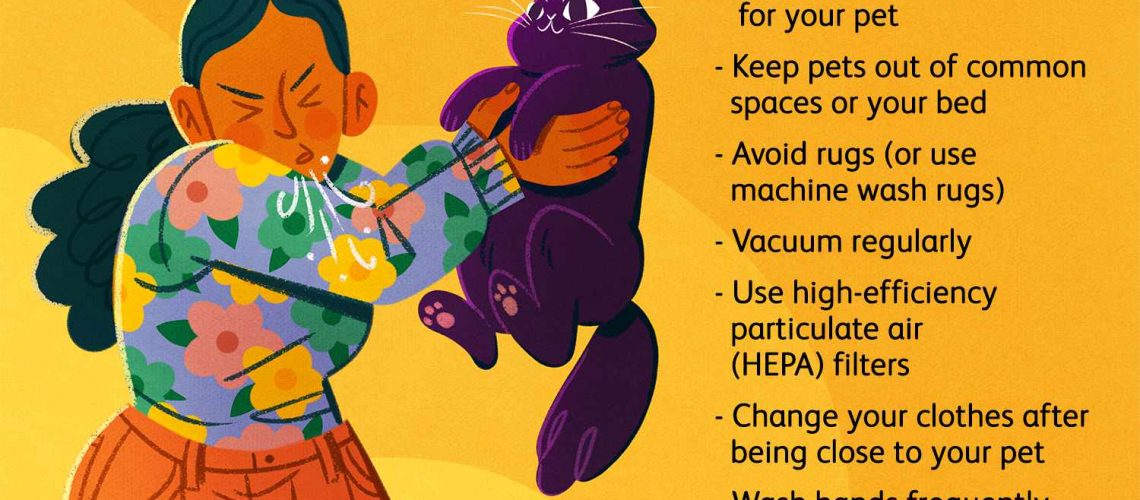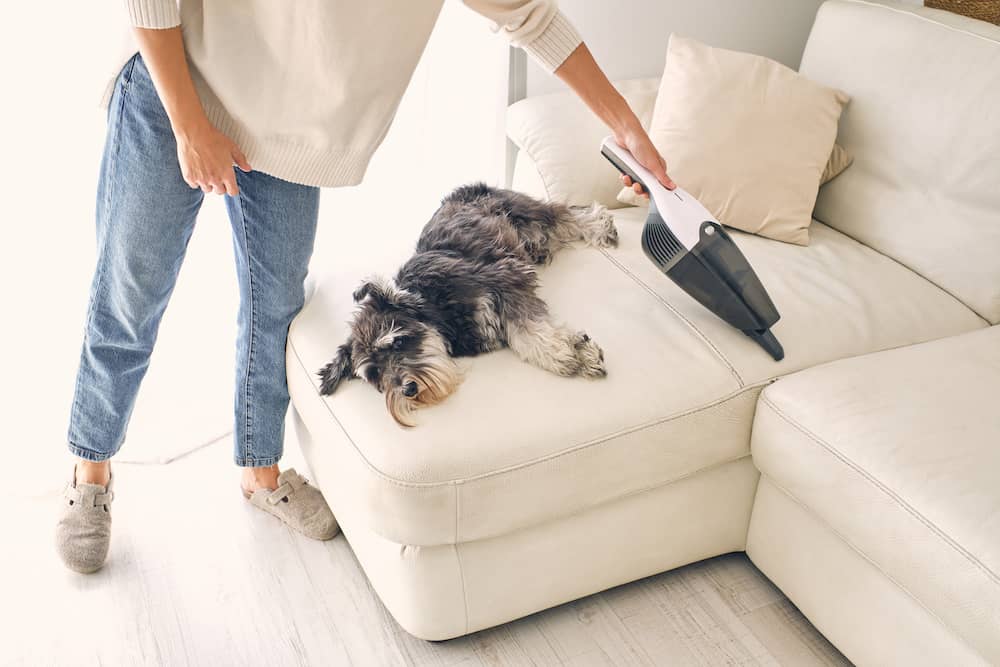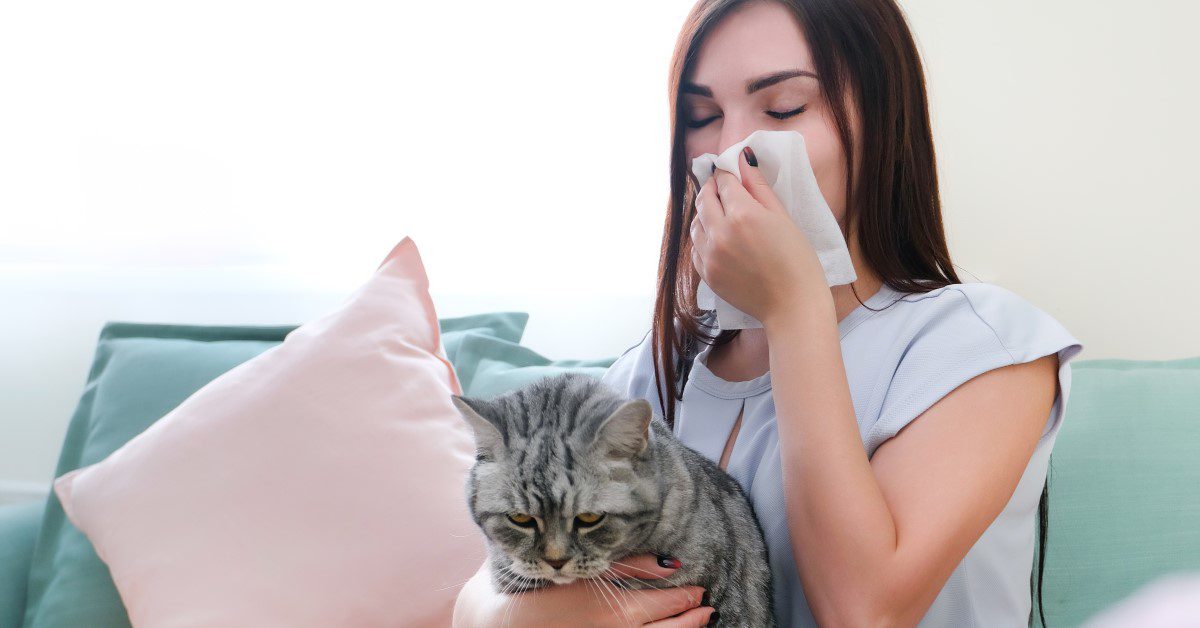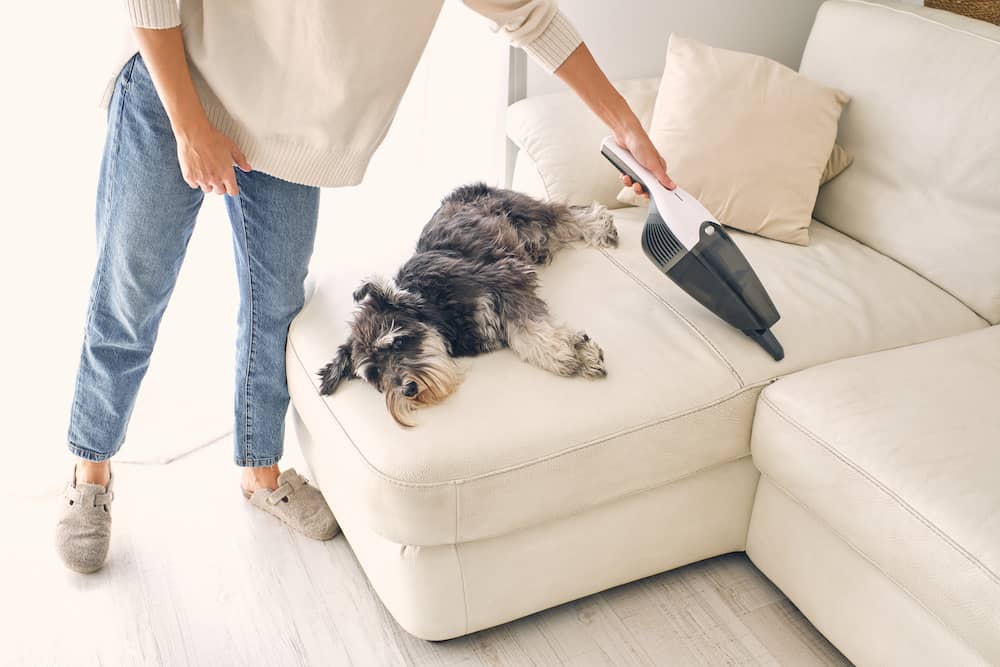If you're a pet lover but suffer from allergies, we've got you covered. Discover effective tips to reduce allergies and enjoy the company of your furry friend without discomfort.
Key Takeaways:
- Regularly clean and vacuum your home to remove pet dander and allergens from surfaces.
- Consider using air purifiers or HEPA filters to improve indoor air quality and reduce pet allergens.
- Create a designated pet-free zone in your home, such as the bedroom, to minimize exposure to allergens while sleeping.
- Frequently bathe and groom your pets to reduce the amount of dander they shed and spread around the house.
- Consult with a healthcare professional or allergist for personalized advice on managing allergies to pets, including medication options or immunotherapy.
Tips to Reduce Allergies to Pets
Understanding Pet Allergies
If you have allergies, you may experience sneezing, coughing, itching, or a runny nose when you're around certain pets. These symptoms are caused by allergens, which are substances that trigger an allergic reaction. In the case of pet allergies, the allergens are usually proteins found in the pet's dander (dead skin cells), saliva, or urine. It's important to note that even if a pet has hair instead of fur, they can still produce allergens.
To reduce your allergies to pets and enjoy their company without discomfort, here are some tips:
Keep Pets Out of Bedrooms
Ideally, it's best to keep your bedroom as a pet-free zone. This will help minimize your exposure to allergens while you sleep and allow you to wake up feeling refreshed. If keeping your furry friend out of your bedroom is not possible due to space constraints or other reasons, consider investing in allergy-proof bedding covers and regularly washing your sheets and pillowcases in hot water.
Vacuum Regularly with a HEPA Filter
Vacuuming your home regularly can help remove pet dander and other allergens from carpets and furniture. Using a vacuum cleaner with a HEPA (High-Efficiency Particulate Air) filter is particularly effective at capturing small particles like pet allergens. Make sure to vacuum not only the floors but also upholstery, curtains, and any other surfaces where dander might accumulate.
Wash Hands After Petting Animals
After spending time with pets, it's important to wash your hands thoroughly with soap and water. This will help remove any allergens that may have transferred from the pet's fur or saliva to your hands. Avoid touching your face or rubbing your eyes before washing your hands, as this can lead to allergens coming into contact with sensitive areas and causing irritation.
Consider Allergy Medication
If you have severe allergies to pets or if other measures are not providing enough relief, you may want to talk to a doctor about allergy medication. Antihistamines and nasal sprays can help alleviate symptoms such as sneezing and itching. However, it's important to consult with a healthcare professional before starting any medication.
By following these tips, you can minimize your exposure to pet allergens and enjoy the company of animals without suffering from uncomfortable allergy symptoms.
Minimizing Exposure to Pet Allergens in Your Home
Vacuum and Dust Regularly
One of the most effective ways to minimize exposure to pet allergens in your home is by vacuuming and dusting regularly. Use a vacuum cleaner with a HEPA filter to effectively remove pet dander from carpets, rugs, and upholstery. Additionally, dust surfaces with a damp cloth or microfiber cloth to trap allergens instead of spreading them into the air.
Keep Pets Out of Bedrooms
To create an allergy-friendly environment in your home, it's important to keep pets out of bedrooms. This helps reduce the amount of pet dander that accumulates on bedding and furniture where you spend a significant amount of time. Consider using baby gates or closing doors to restrict access for pets.
The Importance of Keeping Your House Clean with Pet Allergies
When you have pet allergies, keeping your house clean becomes even more important. Regular cleaning helps remove pet dander and other allergens that can trigger symptoms. It's crucial to clean not only visible surfaces but also areas where allergens can accumulate, such as curtains, blinds, and air vents.
Use Allergy-Proof Covers
To further protect yourself from pet allergens, consider using allergy-proof covers for mattresses, pillows, and upholstered furniture. These covers are designed to prevent allergens from penetrating the fabric and can be easily washed or wiped clean.
Creating an Allergy-Friendly Sleeping Environment
If you suffer from pet allergies, creating an allergy-friendly sleeping environment is essential for a good night's rest. Start by choosing hypoallergenic bedding materials such as cotton or microfiber sheets that are less likely to trap allergens. Wash bedding regularly in hot water to kill any allergens that may have accumulated.
Invest in an Air Purifier
An air purifier with a HEPA filter can help remove pet allergens from the air, creating a cleaner and healthier sleeping environment. Place the air purifier near your bed for optimal results and make sure to clean or replace the filter regularly to maintain its effectiveness.
Reducing Pet Allergens on Clothes and Belongings
Pet allergens can easily cling to clothes and belongings, causing allergic reactions even when you're away from home. To reduce pet allergens on your clothes, consider changing into clean clothes after spending time with pets. It's also important to wash your clothes regularly using hot water and a hypoallergenic detergent.
Designate Pet-Free Zones
To minimize the transfer of pet allergens onto your belongings, designate certain areas of your home as pet-free zones. This can include bedrooms, closets, or specific furniture where you store sensitive items like coats or bags. By keeping these areas free from pet dander, you can reduce the risk of allergic reactions.
Avoiding Eye Contact with Pet Allergies: Why It's Important
When dealing with pet allergies, it's crucial to avoid direct eye contact with pets as much as possible. Pet dander contains proteins that can cause irritation and inflammation in the eyes, leading to symptoms such as redness, itching, and watering. If you must interact with pets, remember to wash your hands thoroughly afterward and avoid touching your eyes.
Alternative Pets That May Cause Fewer Allergic Reactions
If you love animals but suffer from severe allergies, there are alternative pets that may cause fewer allergic reactions. Some options include fish, reptiles, or amphibians, as they don't produce the same type of allergens as furry pets. However, it's important to note that individual reactions can vary, so it's best to spend time with these alternative pets before committing to ownership.
Consider Small Mammals
Small mammals like guinea pigs or hamsters can also be suitable alternatives for individuals with pet allergies. These animals have minimal dander compared to cats and dogs, making them less likely to trigger allergic reactions. However, it's still important to practice good hygiene and keep their living areas clean to minimize allergen exposure.
Hypoallergenic Dog and Cat Breeds: What You Need to Know
If you're set on having a furry companion despite your allergies, hypoallergenic dog and cat breeds may be worth considering. These breeds are known to produce fewer allergens or have hair that is less likely to trigger allergic reactions. Popular hypoallergenic dog breeds include poodles, bichon frises, and Portuguese water dogs. For cats, breeds such as Siberian or Balinese are often considered hypoallergenic.
Consult with Allergy Specialists
Before bringing home a hypoallergenic pet, it's recommended to consult with allergy specialists or undergo allergy testing. This can help determine if you're specifically allergic to pet dander or other allergens present in your environment. It's also important to spend time with the specific breed you're considering to assess your individual reaction before making a decision.
Grooming and Bathing Pets to Reduce Allergens at Home
Grooming and bathing your pets regularly is an effective way to reduce allergens at home. Brushing your pets' fur helps remove loose hair and dander, preventing them from spreading around the house. Bathing your pets with hypoallergenic shampoos can further reduce allergens on their skin and coat.
Seek Professional Grooming Services
If you have severe allergies, consider seeking professional grooming services for your pets. Professional groomers are experienced in handling pets with allergies and can provide thorough cleaning without triggering allergic reactions. They may also offer additional services such as specialized shampoos or treatments to minimize allergen exposure.
Tips to Reduce Allergies to Pets |
|
By following these simple steps, you can significantly reduce allergies caused by pets:
Allergies shouldn't stop you from enjoying the How do you build immunity to pet allergies?Immunotherapy is a treatment option for individuals with hay fever, dust mite allergies, or animal allergies. Its purpose is to reduce the body's reaction to the specific substance causing the allergy, known as the allergen. By undergoing this treatment, the immune system can gradually become less sensitive or desensitized to the allergen. Will pet allergies go away?Allergy shots can help you develop a safe immunity to dog allergies. However, just being around dogs and their dander will not naturally improve your immunity over time. It is not a solution to suffer with allergies in the hope of improving immunity. In fact, being constantly exposed to dogs and dander may lead to frequent illness and harm your overall health. Do air purifiers work for pet allergies?An air purifier is an excellent option for removing animal allergens, as they are lightweight and often float in the air. These devices can effectively eliminate pet dander, which is made up of pet hair and shed skin. Since pet allergens are very small, typically around 2.5 microns in size, the most effective air purifiers for pet allergies are those equipped with HEPA filtration or a similar technology. Can I live with my dog if I'm allergic?When determining whether or not to have a dog in your life, the important factor to consider is the seriousness of your allergies. If your symptoms are manageable and not too bothersome, having a dog may still be possible. In this situation, Dr. Klein suggests that choosing a dog breed that is labeled as "hypoallergenic" is probably the safer option. What kills pet dander?All pet products will advertise themselves as being the most effective at getting rid of dander, but even common household items like dishwashing soap or baby shampoo can get the job done. Can you live with a cat if you are allergic?Even if you are allergic to cats, having one as a pet can still impact your ability to develop a strong bond with them, as you may need to keep a safe distance to avoid sneezing. However, being allergic to cats doesn't necessarily mean you cannot have one as a pet. More Reads
Dr. Clara Bennett
Hello, fellow pet enthusiasts! I'm Dr. Clara Bennett, your go-to expert on all things pets. With a background in veterinary medicine and a passion for nutrition, I've spent years diving deep into the world of cats, dogs, birds, horses, and the products that keep them thriving. From the English countryside, I've witnessed the magic of animals and am here to share my knowledge, ensuring your pets receive the best care. Together, let's master the art of pet care!
All Posts »
Next Steps In Mastering Cat CareNext Steps In Mastering Dog CareJoin Our NewsletterSubscribe to receive our latest updates in your inbox! |
















